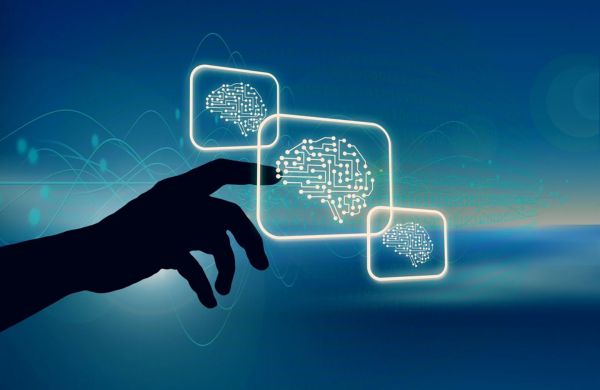
Artificial intelligence continues to make remarkable strides, and in a monumental week for the field, several groundbreaking developments took place. From chat GPT’s astounding performance in stock market trading to the emergence of Tidybot for household assistance, AI is revolutionizing various domains. In this article, we’ll explore 15 mind-blowing advancements that may have flown under your radar, showcasing the potential impact of AI in shaping our future.
Chat GPT’s Stock Market Success
A recent study from the University of Florida revealed that a chat GPT trading algorithm achieved a staggering 500% returns in the stock market. By leveraging sentiment analysis on news, articles, and tweets, chat GPT surpassed conventional models used by hedge funds. The implications of such accuracy and profitability are far-reaching, potentially disrupting the financial industry.
Tidybot: Personalizing Household Cleanup
Imagine a world where robots can effectively personalize physical assistance in tidying up our homes. Researchers have developed Tidybot, a robot that can learn user preferences for organizing objects based on a handful of interactions. By combining language-based planning, perception, and large language models, Tidybot can accurately infer generalized user preferences, achieving 91.2% accuracy on unseen objects in real-world scenarios.
Also Check: 8 Innovative Warehouse Technologies That Can Boost Speed and Accuracy in Fulfillment
Anthropic’s Context Window Expansion
Anthropic, a company funded by Google, has made significant progress by expanding the context window of their large language model. With a capacity of 100,000 tokens, compared to chat GPT’s 32,000 tokens, Anthropic’s model can analyze and process extensive documents with remarkable efficiency. This advancement has implications for generating longer and more coherent text pieces.
Epic Games’ Realistic Character Simulations
Epic Games’ Unreal Engine 5.2 introduces machine learning technology that enhances character simulations in video games. By incorporating full muscle, flesh, and cloth simulation, the engine produces more realistic visuals while reducing the processing power required. This breakthrough promises to elevate the immersive experience in gaming.
NVIDIA’s AI-assisted Motion Capture
NVIDIA’s research papers present an AI-driven approach to motion capture, eliminating the need for expensive and time-consuming traditional methods. By analyzing video footage and mapping it onto 3D characters, NVIDIA demonstrates the potential for real-time, cost-effective motion capture, benefiting game development and interactive software.
Also Check: Cybersecurity in the Age of Digital Risks
AI-Driven Texture Compression
AI is revolutionizing graphics in video games by effectively compressing textures without compromising quality. NVIDIA’s research showcases how AI algorithms can compress graphics while maintaining four times the quality at the same file size. This breakthrough allows for higher quality visuals on existing hardware, enhancing the gaming experience.
Depth Details from Single Images
Researchers have achieved the extraction of accurate depth details from a single image, enabling the creation of 3D models of faces in real-time. This technology has applications in video calls, facial recognition, and various software platforms, offering a new dimension to how we process and interpret visual data.
Personalized Image Generation
A cutting-edge AI tool can generate personalized images based on a single submitted image. By manipulating various attributes, such as adding snow or accessories to an image, this tool demonstrates unparalleled personalization capabilities. The potential applications for content creators and designers are vast, offering endless creative possibilities.
Also Check: Google’s Palm 2: A Game-Changer in Large Language Models
AI Content Generator for YouTube
Meta’s AI content generator is a game-changing tool for content creators. By inputting a topic, this tool provides instant video titles, keywords, descriptions, scripts, and even AI-generated voiceovers. It streamlines the content creation process, saving hours of research and facilitating the production of high-quality videos.
Meta’s Holistic AI Learning with ImageBind
Meta’s ImageBind is an innovative AI system that combines visual and textual information to facilitate holistic learning. By analyzing images and their associated captions or descriptions, ImageBind can infer relationships and generate comprehensive knowledge graphs. This technology has implications for education, research, and content recommendation systems.
DeepMind’s Breakthrough in Protein Folding
DeepMind, a leader in AI research, made significant progress in solving the protein folding problem. Using their deep learning system, AlphaFold, DeepMind accurately predicted protein structures with remarkable precision. This breakthrough has profound implications for understanding diseases, drug discovery, and designing proteins with specific functions.
Also Check: How to Permanently Delete PhonePe Account: Step-by-Step Guide
AI-Powered Speech Enhancement
Researchers have developed an AI system capable of enhancing speech quality in real-time. By leveraging deep learning techniques, this technology filters out background noise, improves speech clarity, and enhances audio quality. Applications range from voice assistants to teleconferencing, providing clearer communication in various settings.
AI-Driven Traffic Management
AI algorithms are transforming traffic management systems by optimizing traffic flow in real-time. By analyzing traffic patterns, historical data, and real-time sensor information, AI can dynamically adjust traffic signal timings, reduce congestion, and improve overall transportation efficiency. This advancement has the potential to revolutionize urban mobility.
AI-Powered Disease Diagnosis
AI is revolutionizing healthcare by assisting in disease diagnosis. Researchers have developed AI algorithms capable of accurately detecting diseases such as lung cancer, diabetic retinopathy, and skin cancer. By analyzing medical images and patient data, these algorithms can provide faster and more accurate diagnoses, improving patient outcomes.
AI-Assisted Language Translation
Language translation is being enhanced by AI technologies, enabling more accurate and fluent translations. Advanced neural machine translation models, such as Google’s Transformer, leverage large-scale language models to improve translation quality across various languages. This breakthrough promotes global communication and fosters cultural exchange.
Conclusion
The field of artificial intelligence continues to push boundaries and deliver groundbreaking advancements across various domains. From finance and gaming to healthcare and transportation, AI is transforming industries and revolutionizing our daily lives. The developments highlighted in this article represent just a fraction of the incredible progress made in AI, underscoring the vast potential and impact of this transformative technology. As AI continues to evolve, it promises a future filled with unprecedented possibilities.

Leave a Reply